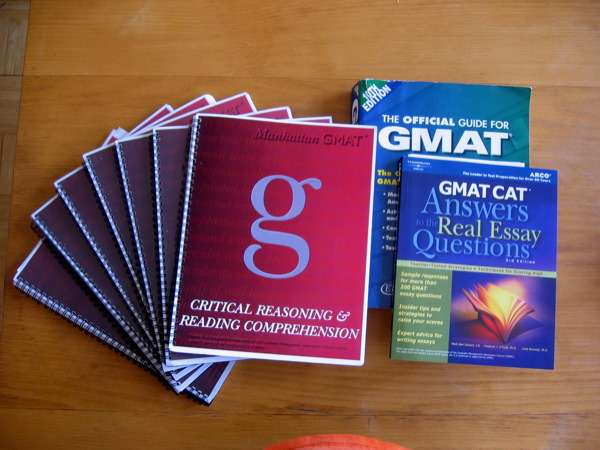Indian Applicants and the GMAT – Should You Retake?
January 11, 2020 :: Admissionado Team
To retake or not to retake? That is the question.
Literally, THE question.
The most popular question we get around here, in the forums, on the street… everywhere. So let’s talk about it, shall we? Starting at the center of it all: GMAC statistics….
The first thing one notices looking at the GMAC statistics is that India is sending the most scores (4.4 score reports vs. the global average of 2.9) What does this tell us? Firstly, it gives us an idea of just how tough things are for Indian applicants; not only is it already a very large and crowded pool but Indians tend to apply to a lot more schools than other applicants, which, in a certain way, ‘bloats’ the number of Indian applicants in comparison to their part of the applicant pool.
So what does this mean for YOU?
Well, first and foremost, it means that a GREAT application is mandatory. One that shows uniqueness, clarity of vision, voice, humor, originality, daring… All of these elements are VERY important, especially for Indian applicants, because more than just “seeming good,” or having a high GMAT score…you need to be DIFFERENT.
Secondly, any candidate can get an advantage by applying to more schools (the more the merrier, right?). For Americans applying to US schools, 6-8 schools would be considered “more schools.” For Indian applicants, however, that number is even HIGHER. Think 8-10. And that means you need to start your applications earlier, plan better, and be smarter/more flexible when it comes to your school choice.
Mooooving on….
Some other interesting information from the GMAC reports:
1. Looking over the last five years, total mean scores go from 568 to 582. Yup, people are testing better, which makes it even TOUGHER for you guys 🙁
2. Good news for Indian FEMALES. The share of regional exams taken by women is only 26 percent, the lowest of any world region. Which may mean that although it is tougher for Indian males, it may not be for Indian females. And US schools do work hard to keep a good balance in their class profile, with most schools having between 30-50% female students. So… go women, go!
But let’s get back to this whole re-take thing.
The number of people retaking the GMAT in East and Southeast Asia is 32.4%
And in the US… only 14.4% .
Now, we know that there is more in there than just India but stay with me. That number makes total sense. Indian applicants are up against stiff competition, so it’s natural to want to re-take the test, get that score up 20-3o points and feel better about your chances. Which explains why we get this questions ALL. THE. TIME:
“I’m an Indian male and I got a 720, should I retake?” [It’s very rare that we hear that question from a guy in the US!]
The reasoning is, if they get that score up they’ll be a guarantee at Stanford. But, hate to burst your bubble, it doesn’t exactly work like that. Here’s the truth, my friends: schools look at everything! EEEEVERYTHING. And beyond a certain point, there are other things which become more important. Like working on your essays and finding your original voice. Or ensuring you get out two or three more applications than you would have to cast a wider net and open your options a bit. Or working on that start-up idea to have something happen before you apply. Or making up for your weak volunteer experience, by taking on another non-profit post….
[Click here for more advice on writing successful applications.]
So should YOU retake your GMAT???
Obviously, every case is different, and there is no global answer, but here are some things to ask yourself.
1. Am I testing close to my maximum? Meaning, how does your actual GMAT score match up with your mocks? If you are 10-20 points below your mocks then you probably won’t do much better on a retake. (In fact the general statistics on retakes confirm this – folks who retake the test get on average about 30 points higher, so people aren’t testing 100 points higher each time). If the difference is huge though, then yes, consider a retake – maybe something did happen on test day.
2. What else could I do with my time?? If you are applying to round one in October of a specific year and it is March, a retake cannot hurt you, because you have all the time in the world. So in most cases I would say give it a shot. But if it’s June/July, your GMAT is going to take time away from your applications, or your work, or perhaps some other area in which you can improve yourself. So think about how your time will be better spent: another GMAT, or improving other areas.
3. How important is the GMAT given my specific profile? In some cases, a GMAT is more important for some candidates than for others. For example, for applicants to the HBS 2+2 program, for people who come from a non-business background (and for whom the GMAT is the only proof of business capabilities), or for candidates who have low GPAs. For those guys, the GMAT becomes more important than for “regular” applicants. Are you one of those “non-traditional” guys?
At the end of the day, the GMAT – although very, VERY important – is not a ticket into a top B-School. Getting a 770 will not necessarily get you into HBS if you are missing the background (the good school, the unique job, the passionate essays, the strong community service). So keep that in mind when you’re asking yourself if your current score is good enough.




